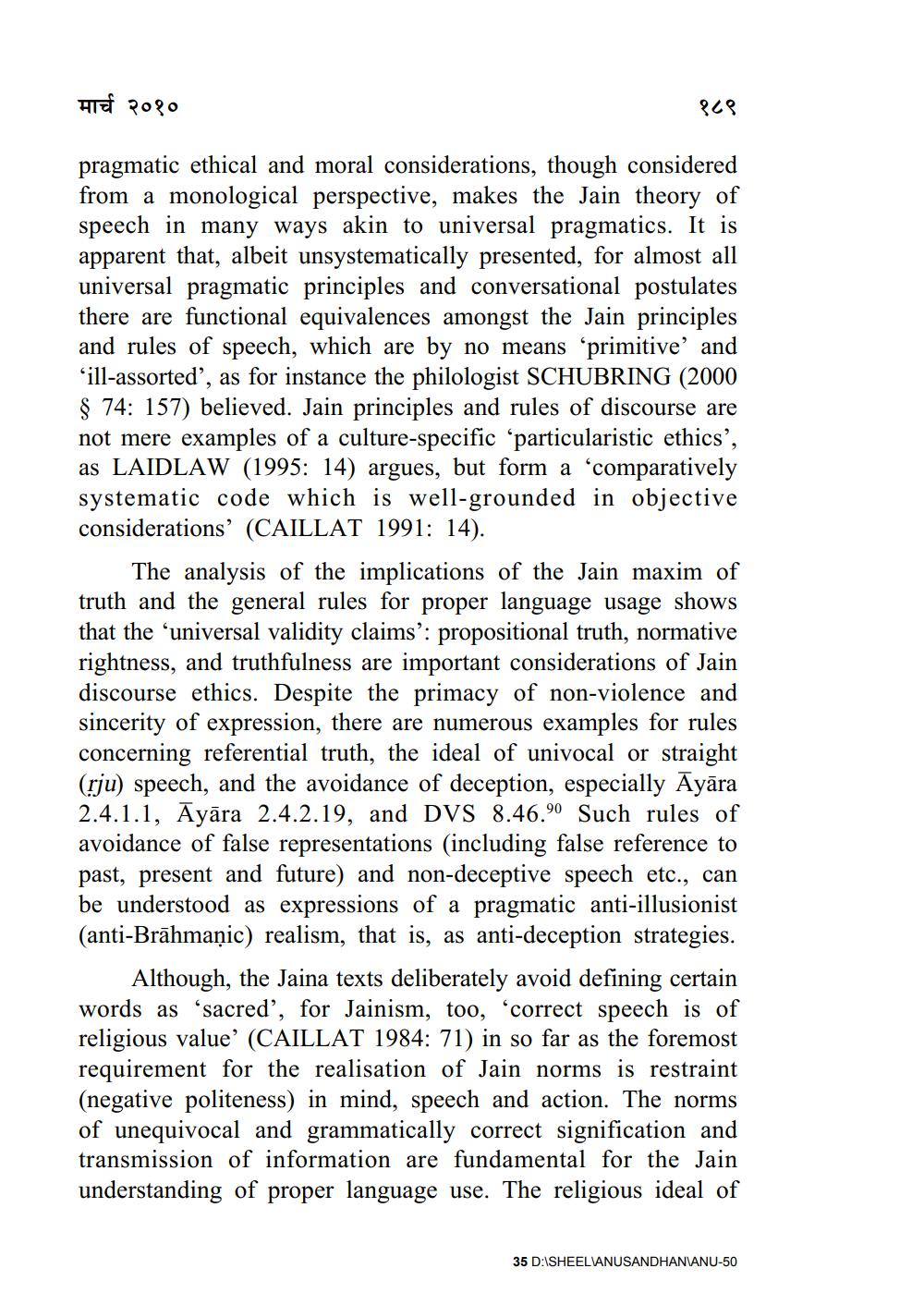________________
मार्च २०१०
१८९
pragmatic ethical and moral considerations, though considered from a monological perspective, makes the Jain theory of speech in many ways akin to universal pragmatics. It is apparent that, albeit unsystematically presented, for almost all universal pragmatic principles and conversational postulates there are functional equivalences amongst the Jain principles and rules of speech, which are by no means “primitive and ‘ill-assorted', as for instance the philologist SCHUBRING (2000 § 74: 157) believed. Jain principles and rules of discourse are not mere examples of a culture-specific ‘particularistic ethics', as LAIDLAW (1995: 14) argues, but form a comparatively systematic code which is well-grounded in objective considerations' (CAILLAT 1991: 14).
The analysis of the implications of the Jain maxim of truth and the general rules for proper language usage shows that the ‘universal validity claims': propositional truth, normative rightness, and truthfulness are important considerations of Jain discourse ethics. Despite the primacy of non-violence and sincerity of expression, there are numerous examples for rules concerning referential truth, the ideal of univocal or straight (rju) speech, and the avoidance of deception, especially Ayāra 2.4.1.1, Āyāra 2.4.2.19, and DVS 8.46.90 Such rules of avoidance of false representations (including false reference to past, present and future) and non-deceptive speech etc., can be understood as expressions of a pragmatic anti-illusionist (anti-Brāhmaṇic) realism, that is, as anti-deception strategies.
Although, the Jaina texts deliberately avoid defining certain words as 'sacred', for Jainism, too, 'correct speech is of religious value' (CAILLAT 1984: 71) in so far as the foremost requirement for the realisation of Jain norms is restraint (negative politeness) in mind, speech and action. The norms of unequivocal and grammatically correct signification and transmission of information are fundamental for the Jain understanding of proper language use. The religious ideal of
35 D:SHEELANUSANDHAN ANU-50




